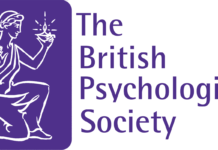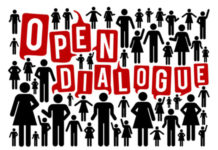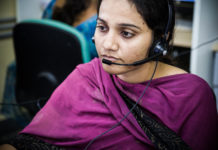Opening A Dialogue In Mental Health
I have sometimes stopped en route to work, unsure how much longer I can continue. There is a sense of betrayal to my father and grandmother by working in a profession that failed them and is the only medical specialty to have its own survivor movement, not from the illnesses it hopes to treat, but from the ministrations of the profession itself.
How to Promote Community Inclusion in Mental Health Practice
Practitioners and public leaders identify methods and barriers for integrating those diagnosed with mental health issues into community life.
Using Breathing-Based Meditation to Treat Depression
Study reveals data suggesting yogic breathing may be helpful in treating depression for patients who have not respond to antidepressants
Alternative Therapies for Adolescent Depression as Effective as CBT, Study Finds
Brief psychodynamic and psychosocial interventions help maintain reduced depressive symptoms
Researchers Call for Transparency About Limits of Psychiatric Knowledge
A new paper explores how the disputed nature of psychiatric knowledge influences public perceptions and debates within the field of mental health.
Psychologists Push For New Approaches to Psychosis: Part 1
Psychologists and people with experience of psychotic symptoms publish a report on new ways of understanding psychosis.
Pilot Study Adapts Open Dialogue for US Health Care
In an article for Psychiatric Services, psychiatrist Christopher Gordon and his colleagues report on the results of a one-year feasibility study attempting to implement...
Aliveness and Social Justice: Teaching the Principles and Practices of Open Dialogue
Over the past seven years, I have been teaching open dialogue principles and practices in a variety of settings. This blog will focus on the development of a training program, now based in Manhattan, and what I’ve learned from running this program and teaching this approach in the US.
What is Contributory Injustice in Psychiatry?
An article on contributory injustice describes the clinical and ethical imperative that clinicians listen to service users experiences.
Study Finds No Correlation between Personality at 14 and 77
This result calls into question popular notions about the correlations between personality and later-life achievement and health outcomes.
Study Finds Hearing Voices Groups Improve Social and Emotional Wellbeing
Hearing Voices Network self-help groups are an important resource for coping with voice hearing, study finds.
Third Time Lucky: Open Dialogue and Finding Meaning in My Inherited Trauma
A year after my twin’s death, I stood in a supermarket and felt my body disintegrating into a thousand pieces. My soul knew it needed the right teacher and helper. Fortunately, I found Open Dialogue. It helped me expose the real childhood trauma, and gradually rebuild my shattered, grief-stricken psyche.
JAMA Article Challenges CBT as Gold Standard for Psychotherapy
A review of CBT research findings raises questions about its status as the “evidence-based” psychotherapy of choice.
Neoliberalism Drives Increase in Perfectionism Among College Students
Meta-analytic study detects upsurge in patterns of perfectionism in young adults and explores how neoliberalism contributes to this trend.
Pets Play Central Role in Management of Mental Health Problems
Individuals with long-term mental health conditions identify pets as valuable supports in their daily lives.
There is More to Mindfulness than the Brain
According to Lifshitz and Thompson, mindfulness is best understood as “complex orchestration of cognitive skills embodied in a particular social context.”
Existential Therapy Assists Patients Withdrawing From Psychiatric Drugs
Confronting existential anxiety through “Basal Exposure Therapy” shows promising results in people withdrawing from psychotropic drugs.
Madness and the Family, Part III: Practical Methods for Transforming Troubled Family Systems
We are profoundly social beings living not as isolated individuals but as integral members of interdependent social systems—our nuclear family system, and the broader social systems of extended family, peers, our community and the broader society. Therefore, psychosis and other forms of human distress often deemed “mental illness” are best seen not so much as something intrinsically “wrong” or “diseased” within the particular individual who is most exhibiting that distress, but rather as systemic problems that are merely being channeled through this individual.
Psychiatrist Describes Role in Open Dialogue Model of Care
Psychiatrist outlines varying roles in Open Dialogue model, fostering service-user and family agency through meaningful conversations with a team of providers.
The Conflicts That Result From Globalizing Euro-American Psychology in India
Researchers examine the transformation of work, life, and identity in India as a result of Western corporate and psychological culture.
The Role of Context, Language, and Meaning in Hearing Voices
Sociocultural context, language, and sense-making process are among concepts that can help hearers and providers better understand the phenomenon of hearing voices
Improving the Efficacy of Mindfulness in Schools
New research examines factors that make mindfulness interventions in school most effective for adolescent’s mental health outcomes.
An Essay on Finnish Open Dialogue: A Five-Year Follow-Up
It has been five years since I traveled to Western Lapland in Finland to film my documentary “Open Dialogue” on their Open Dialogue Project—the program, as I stated in the film, presently getting the best long-term statistical results in the world for the treatment of first-episode psychosis. My film came out four years ago, and since then I have been screening it around the world, giving lectures about Open Dialogue and my experience in Finland, participating in regular conferences and Q&A sessions about it, receiving daily emails, Facebook messages, blog and Youtube comments about it (as it’s now been free on Youtube for a year), and keeping in regular contact with some of the folks who work there. But I haven’t shared many of my updated opinions in writing, so I wish to do so now.
Psychotherapists Reflect on Lack of Improvement in Therapy
Qualitative research examines the experiences of psychoanalytic therapists in their work with patients whose symptoms either failed to improve or worsened.
How Helpers Empathize may Affect Their Personal Well-being
Researchers distinguish between two different forms of perspective taking and examine their impact on helpers’ wellbeing.































